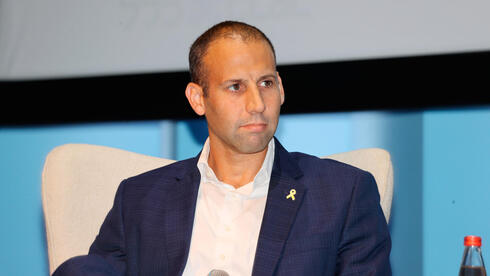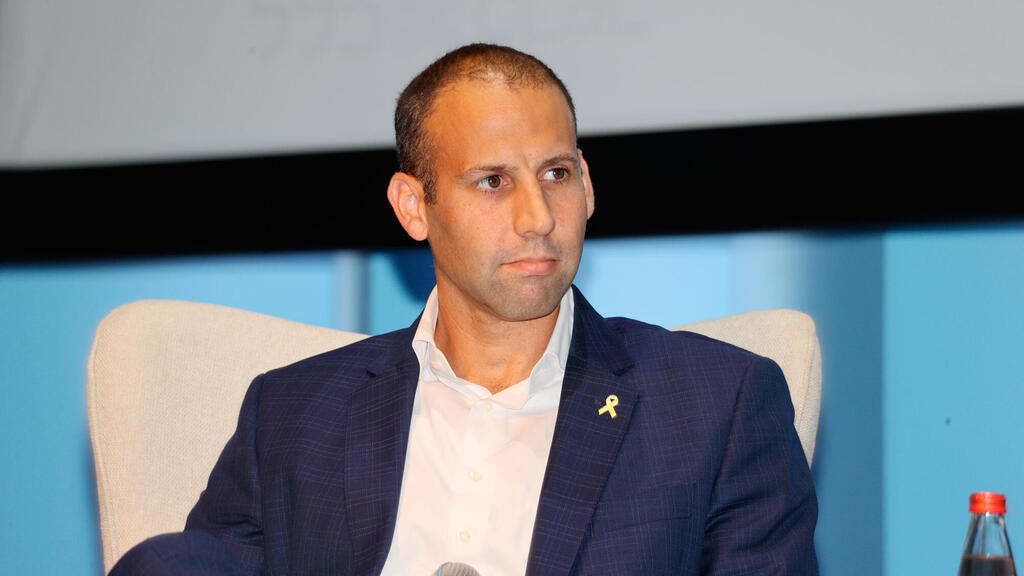
National Economic Conference
"We invested more than NIS 9B over the last five years. We were prepared for the war at the level of a combat unit"
Tomer Raved, chairman of Bezeq, said at the Calcalist and Bank Leumi National Economic Conference that "within days, we connected over a thousand shelters in municipalities across the country to the Internet."
When sirens sounded and the skies lit up, Israel’s national telecom giant faced a test no corporate war game could fully simulate. Overnight, Bezeq connected hundreds of bomb shelters to the Internet, braced for cyberattacks, and kept the country online as demand spiked by levels usually seen over years, not hours. Chairman Tomer Raved said at Calcalist and Bank Leumi's National Economic Conference that it wasn’t luck but years of quiet investment that kept Israel’s digital lifeline intact when the rockets came.
Let’s start with Israel’s current situation. How many people requested range extenders for shelters when the war with Iran broke out?
“We saw an increase of several hundred percent right from the start. Within days, we connected over a thousand shelters in municipalities across the country to the Internet.”
We saw the consequences when there was an attempt to damage critical infrastructure, like at Bazan. Communications infrastructure is just as vital, we all depend on it. How do you protect it?
“Bezeq’s survival is essential. There is no country, no economy, and no Internet without Bezeq’s infrastructure. But the war found us ready. We invested heavily, more than NIS 9 billion over the last five years, without any government support. We came prepared, at the level of a combat unit. Within a minute, all our companies are trained and know exactly what to do. It’s true that there are constant attempts to attack us, but we have multiple layers of backup, including underground infrastructure. We can also handle a massive surge in usage. To illustrate: on October 7, network traffic spiked in a single day by the same amount it usually grows over two full years. The reason the network held up is because we prepared it to deliver 10–20 gigabytes to every home.”
Cyberattacks are growing in number and intensity. How do you handle this constant threat?
“This has been an ongoing issue for telecom companies globally for over a decade. We work closely with the government’s cyber and security agencies, and our preparedness is very high.”
Let’s talk about Bezeq’s business strategy. You report progress on abolishing the structural separation. Will this actually happen this year despite political upheaval?
“To advance the country, we need supportive regulation across all areas. We see that regulators in Israel increasingly understand the need to enable progress, as happened in Europe. Everything we do is aimed at improving Israel’s global rankings for broadband and mobile connectivity. Structural separation is a burden on consumers, abolishing it will lower prices and free up capital for investment in content and innovation. Europe did this nearly twenty years ago. Regulators and the Ministry of Communications understand that companies need the freedom to invest, we’re not government companies, we drive the economy independently.”
Even if the Knesset dissolves?
“We’ll continue pushing ahead, just as we did during the previous election cycles.”
Yesterday, you announced the signing of a memorandum of understanding to acquire Exelera, a submarine cable company, for half a billion shekels. What’s the logic behind this, given that you already own a submarine cable?
“Our vision is both economic and strategic. Currently, all Internet traffic between Europe and Asia passes through the Suez Canal, which involves a risk from the Houthis. In recent years, we also completed the first land-based project for Google. Bezeq will be the only Israeli player capable of competing in the submarine cable arena. It’s part of our long-term strategy, Israel’s geographical position gives it an advantage as a critical data junction.”














